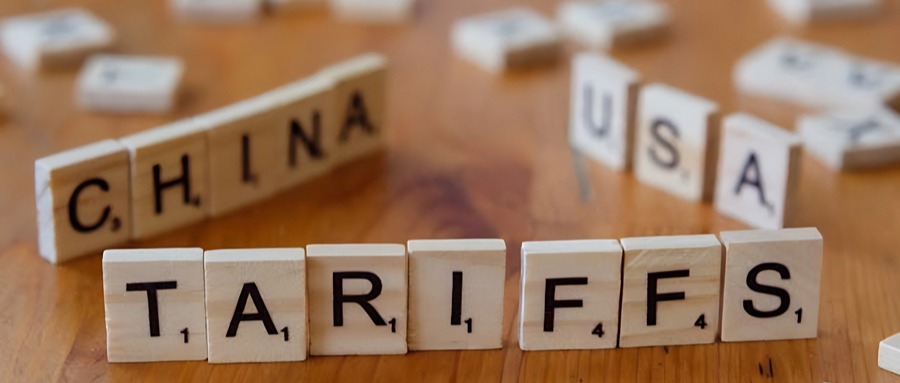Summary:
China's 15% tariff on U.S. corn in 2025 triggered a 97% import collapse, driving self-sufficiency to 95.6% and shifting sourcing to Brazil (68% of imports). Domestic prices rose 9% to ¥2,850/ton, while Brazil's 2025 exports may surpass the U.S., reshaping global trade under China's tariff-led strategy.
U.S.-China Tariff War Escalates: How 15% Duties Reshaped Global Corn Trade
-
Direct Cause: In March 2025, the U.S. imposed a 10% tariff on Chinese goods under the pretext of "fentanyl control." China retaliated by levying a 15% tariff on U.S.-origin corn, wheat, and other agricultural products, and a 10% tariff on sorghum and soybeans effective March 10. This move aimed to safeguard national interests and counterbalance the impact of U.S. unilateral tariffs on Chinese industries.
Tariff-Driven Import Collapse: China's Shift from U.S. to Global Corn Suppliers
2025 Corn Products Import Data: U.S. Share Drops to 12% as Brazil Dominates
-
In 2024, China imported 13.64 million tons of corn, with U.S. imports accounting for only 15.2% (2.07 million tons), down sharply from 72% in 2022 (National Food and Strategic Reserves Administration data).
-
Post-tariff, U.S. tranalysis.com/blog/detail/123207?KeyWordID=4785b4474cf142ee8bcca50764379c5c&PublisherID=b3fac7dd-9156-424c-9843-193631ebb67b' target='_blank'>corn import costs became significantly higher than Brazilian corn. March 2025 data showed U.S. corn's landed cost at 4,076 RMB/ton vs. 3,545 RMB/ton for Brazilian corn, forcing companies to shift sourcing to Brazil, South Africa, and other countries.
Price Transmission: How Tariffs Boosted Domestic Corn Prices by 9% in 2025
-
Domestic corn prices rose 8–12% year-on-year in March 2025 due to reduced imports and policy support, boosting farmer planting incentives.
-
Feed enterprises mitigated cost pressures through formula adjustments (soybean meal ratio reduced from 17% to 11%) and substitutions like rapeseed meal and cottonseed meal.

China's Corn Self-Sufficiency Strategies: Tariff Mitigation and Technological Leap
Diversified Import Channels: Brazil, Ukraine, and South Africa as Key Suppliers
-
Brazil: As the world's third-largest corn producer (over 100 million tons annually) and second-largest exporter (25% of global exports), Brazil replaced the U.S. as China's top corn supplier in 2023. From March–October 2025, Brazil is projected to export over 12 million tons to China, accounting for >60% of China's total imports.
-
Ukraine: Despite disruptions from the Russia-Ukraine conflict, Ukraine resumed partial corn supply via the Black Sea corridor in 2025.
-
South Africa: Initiated corn exports to China in 2024, diversifying African supply chains.
GMO Breakthroughs and Industrial Upgrades: 23% Seed Sales Growth Under Tariff Pressure
-
Bio-Breeding Breakthroughs: Sinograin optimized corn variety layouts, achieving a 23% increase in seed sales and 5–8% yield improvements in 2024.
-
GMO Commercialization: Accelerated policy support for GMO corn industrialization, with leading seed companies expanding technical reserves. Planting area is expected to exceed 15 million mu (1 million hectares) in 2025.
-
Reserve Adjustments: The National Food and Strategic Reserves Administration stabilized markets through temporary grain reserve auctions and increased procurement.

2025 Corn Market Outlook: Tariff-Led Self-Sufficiency and Global Supply Shifts
Tariff-Driven Import Collapse: U.S. Share Drops to 12% as Brazil Dominates
-
January–February 2025 corn imports dropped 37% year-on-year, with U.S. imports accounting for just 12% vs. Brazil's 68% (General Administration of Customs data).
-
March 2025 saw 1.22 million tons of Brazilian corn arrive in China, compared to only 70,000 tons from the U.S.
Tariff Impact on Prices: Domestic Corn Hits 3-Year High at ¥2,850/ton
-
Domestic corn prices reached 2,850 RMB/ton in March 2025, a 9% year-on-year increase and a three-year high (China Grain Net).
95.6% Self-Sufficiency Achieved: Tariff Policies Boost Domestic Production
-
China's 2024 corn output hit 285 million tons (+3.2% YoY), achieving 95.6% self-sufficiency (National Bureau of Statistics).
-
By 2025, domestic corn consumption is projected to rise to 96.5%, reducing import dependency to 3.5%.
Tariff-Led Market Realignment: Brazil to Overtake U.S. as Top Corn Exporter by 2025
-
Global Market Realignment: Brazil is poised to maintain its dominant role in China's corn imports, with 2025 production forecast at 138 million tons and exports potentially surpassing the U.S.
-
Policy Synergies: Tariffs, combined with initiatives like the Livestock Industry Grain-Saving Action, aim to reduce soybean meal usage by 5 million tons in 2025, driving corn-soybean meal substitution.
Data Sources: CCM, National Food and Strategic Reserves Administration, General Administration of Customs, China Grain Net
More information can be found at CCM corn products China Monthly Report.
About CCM:
CCM is the leading market intelligence provider for China's agriculture, chemicals, food & feed and life science markets. Founded in 2001, CCM offers a range of content solutions, from price and trade analysis to industry newsletters and customized market research reports. CCM is a brand of Kcomber Inc.
For more information about CCM, please visit www.cnchemicals.com or get in touch with us directly by emailing econtact@cnchemicals.com or calling +86-20-37616606.